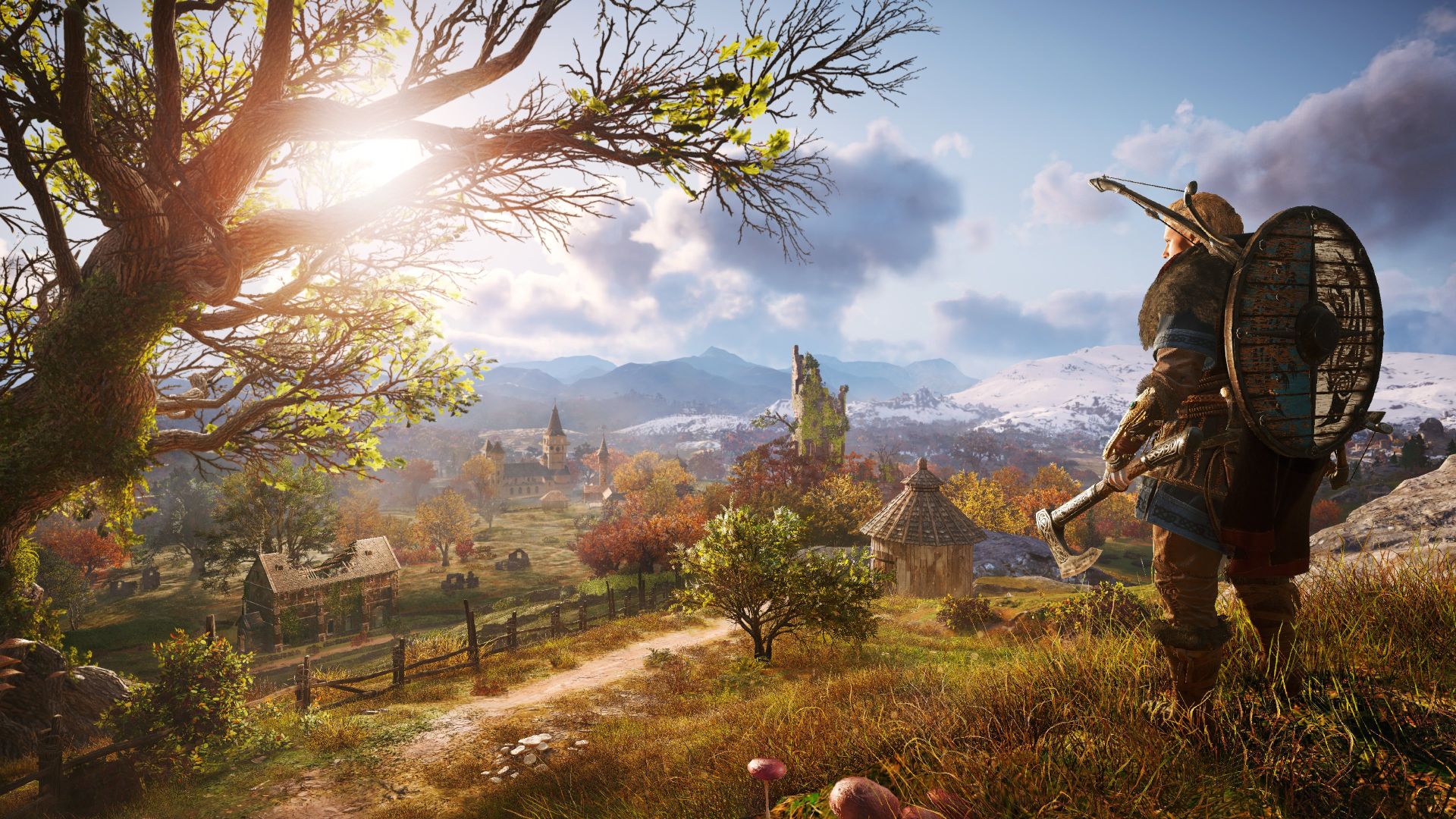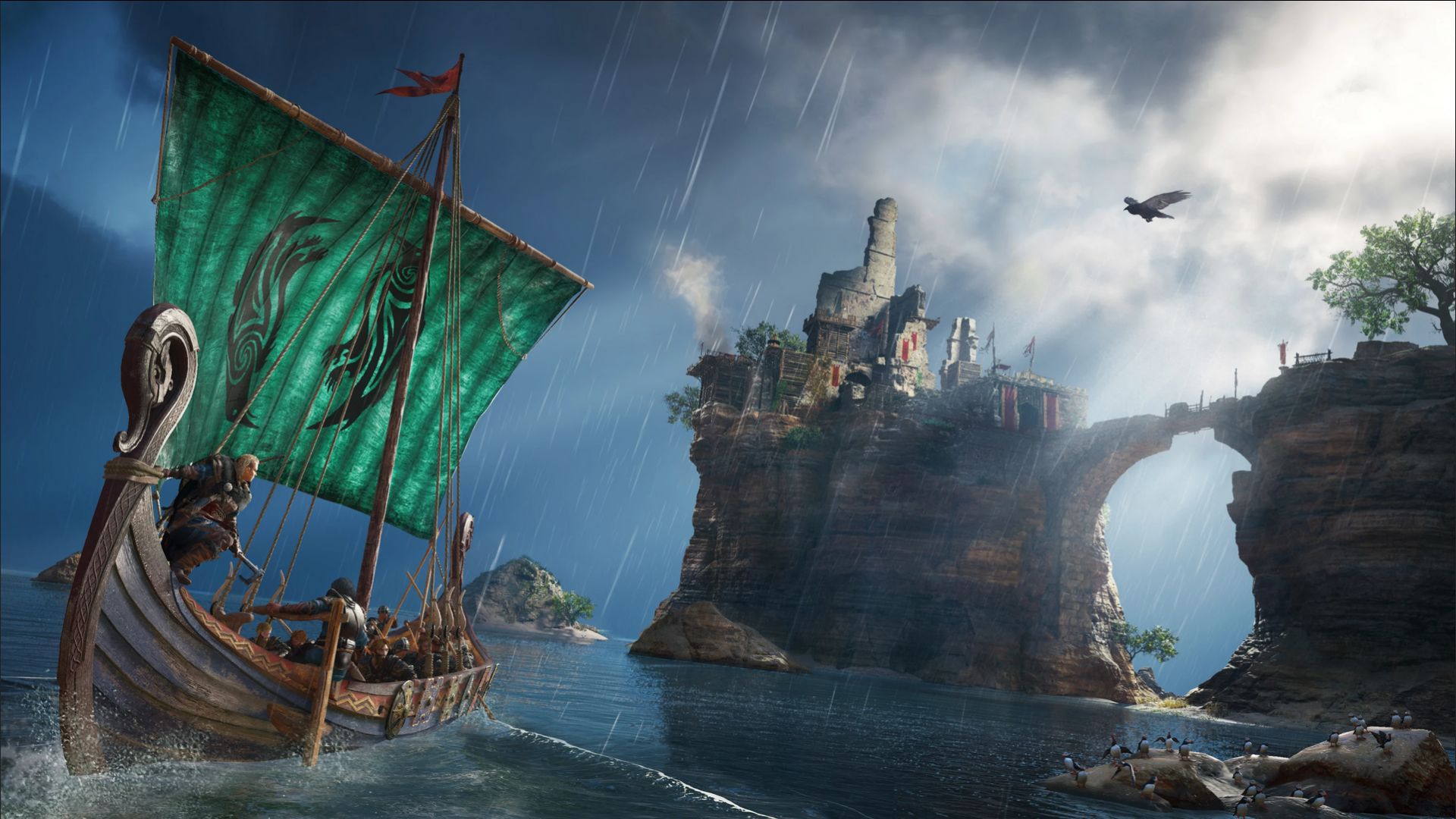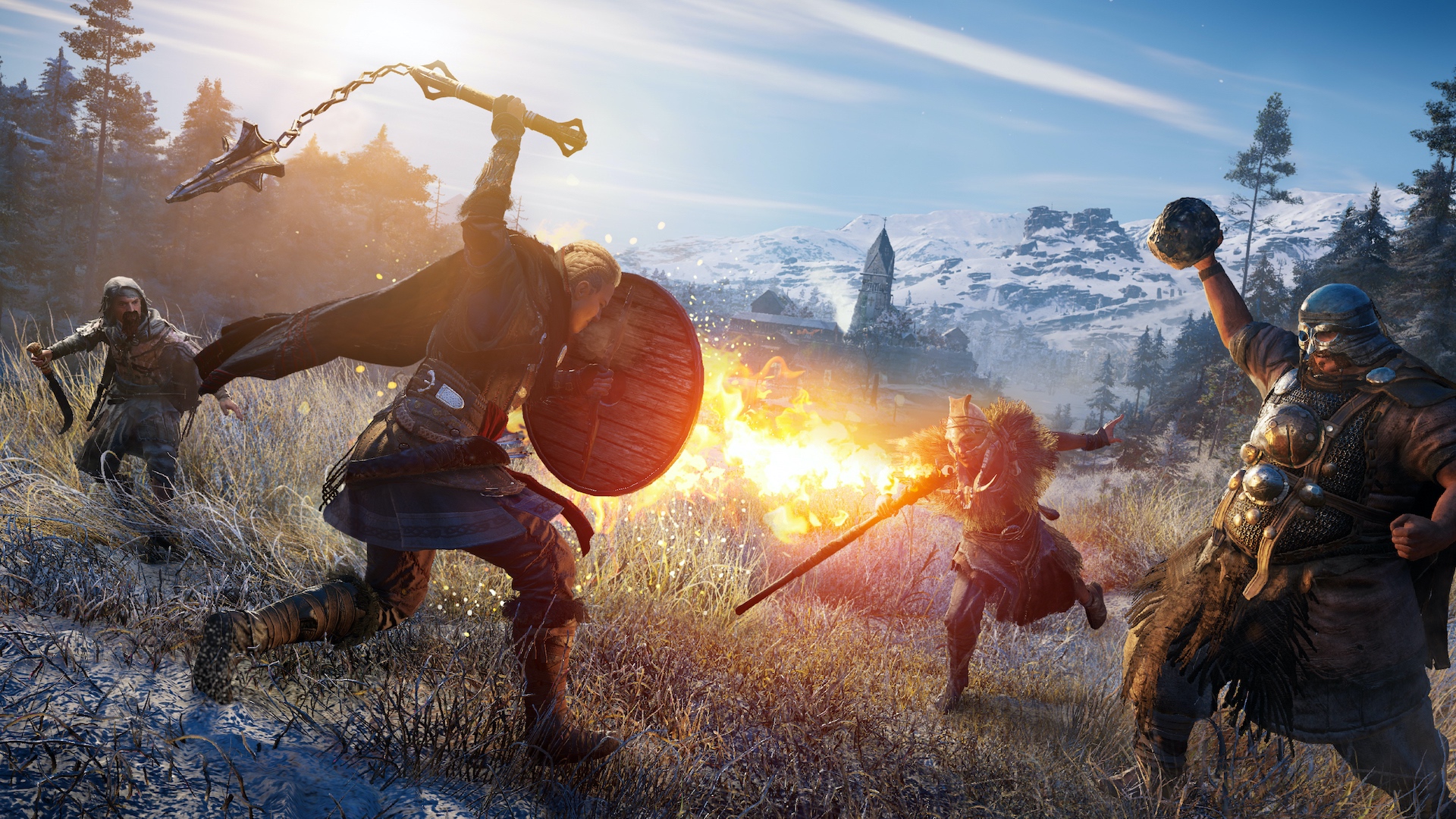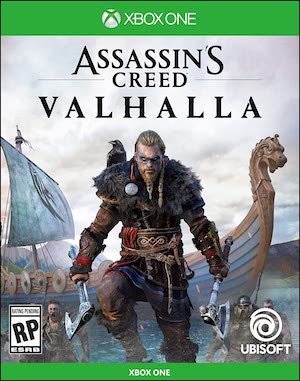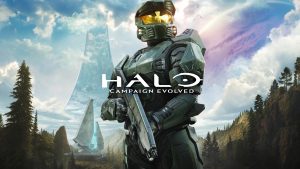
Since its reinvention with Origins in 2017, Assassin’s Creed has gone from strength to strength in impressive fashion. 2018’s Odyssey was one of the series’ strongest outings ever, and proved to be the game that well and truly saw the franchise transitioning into a full-blown RPG, and with the upcoming Assassin’s Creed Valhalla, Ubisoft are looking to take things even further. A game that builds on Odyssey’s formula would have been exciting nonetheless, but the chance to play an Assassin’s Creed game about Vikings has got people more than just a little excited- ourselves included. Recently, we sent across some of our most burning questions about the upcoming open world epic, asking about its open world, quest design, combat, RPG elements, choice and consequence mechanics, and much more. You can read our conversation with narrative director Darby McDevitt below.
"Fans who are invested in the lore of our series will find a lot to chew on in Assassin’s Creed Valhalla, if they’re willing to seek it out."
Since the series underwent its transformation with Origins and then with Odyssey, the stories and settings have become somewhat isolated from previous games, partly because they take place hundreds of years before any of the other games. With Valhalla, though, which is set between Origins and the first game, can players expect the game’s story and larger narrative structure to sort of bridge the gaps between the series’ two eras?
Absolutely. In 9th century England we found the perfect opportunity to introduce players to ideas and narrative threads that were only hinted at in Origins, set in the first century BC, and obscure in the first Assassin’s Creed, set in the Holy land in the 12th century. Our bridge ended up being the Roman Empire, nascent in Origins, and now broken into shards in Valhalla. But when the Empire went, so did the precursors to our Assassins and Templars, and we use that historical fact to leave lots of historical residue, to tell the stories of the eternal war that underpins our series. Fans who are invested in the lore of our series will find a lot to chew on in Assassin’s Creed Valhalla, if they’re willing to seek it out.
Can you speak to us about side quests, and what players can expect from them in terms of not just variety and quality, but also how much they will be integrated into the main story?
One of the first things we asked ourselves when making Assassin’s Creed Valhalla was “Does the traditional Main Quest / Side Quests format work for a Viking who invades a hostile country?” The answer was a resounding “no”. Traditional Side Quests, as you find in almost every RPG around, just didn’t make sense for our character — we couldn’t see Eivor taking time out of their raids and assaults to stop and help a stranger out of the kindness of their heart. That sort of generosity applies to a Medjay, or a Mercenary, or a generic Hero, but not to a Viking raider. The locals would be too suspicious of Eivor.
After some deliberation, we made an early decision to change the usual RPG formula drastically and focus on telling more long-form stories with high stakes, sprawling arcs, and huge emotions. So rather than playing one long main story and, for example, one hundred miniature stories, players will experience many key stories that each have the epic scope of a feature length film. Many of these connect to Eivor’s personal journey, others feel more stand-alone, but all are related to Eivor’s and their clan’s desire to carve out a permanent place of their own in England.
By embracing this format, it left us a lot of room for smaller and more intimate narrative moments scattered throughout the world, moments we call World Events — countless small little happenings, side stories, and surreal encounters that players may engage with as they see fit. They won’t be tracked in your quest log, but they’ll tug at your curiosity.
Assassin’s Creed Odyssey introduced player choice to the series with dialogue choices- how much can players expect Valhalla to focus on the same? Are choices and consequences going to be more pronounced in the game than they were in Odyssey?
Many of the player’s choices will help shape Eivor’s destiny, the state of their alliances, the attitude of their enemies, and the mood of their clan. The effect of these choices may be minor or major, immediate or delayed. Players may even see these decisions affect their Settlement and the world around them. This being an Assassin’s Creed game, I will add that the general weight and thrust of history will certainly be respected… but the details of the journey will differ for everyone.
Something that both Origins and Odyssey have excelled at is in spite of the massive sizes of their worlds, they’ve had a great deal of diversity in locations and environments. Is that something that Valhalla emulates?
Assassin’s Creed is well-known as an open-world action-adventure franchise, and each game approaches their setting and story in their own way. When creating the world of Assassin’s Creed Valhalla, we focused on creating significant new gameplay features that will allow players to fully experience the role of a Viking raider and settler, and give them the tools to explore every corner of this lively, living world.
While we don’t have specifics to share at this time, Assassin’s Creed Valhalla players will be able to experience a complete and captivating Viking experience, first in Norway and then in England, where the four kingdoms of Wessex, Mercia, Northumbria, and East Anglia offer a stunning variety of environments, cultures, and weather.
"After some deliberation, we made an early decision to change the usual RPG formula drastically and focus on telling more long-form stories with high stakes, sprawling arcs, and huge emotions. So rather than playing one long main story and, for example, one hundred miniature stories, players will experience many key stories that each have the epic scope of a feature length film."
Assassin’s Creed is, of course, always deeply entrenched in history and tries more often than not to retain accuracy in the most crucial places- but with recent entries (especially Odyssey or even Origins’ second expansion), it has veered harder and harder into mythology and fantasy. What sort of a balance is Valhalla going to strike between those two sides?
The Viking invasions during the 9th century shaped the birth of England as a nation. Within this setting, Assassin’s Creed Valhalla offers the player a grounded, intimate, and deeply personal exploration of Viking life; their culture, values and motivations.
This approach extends to the Norse religion and their pantheon of capricious gods. We wanted to depict this rich mythology as a living religion, not a historical relic, one that suffused the lives and beliefs of the Norse people and guided their behavior.
One example of this are the Cursed Symbols in Assassin’s Creed Valhalla. These items, crafted by frightened Saxons to keep the Vikings off their land, are scattered around England. When Eivor approaches one, the sky will darken, the music will intensify, and the atmosphere grows oppressive…. not because there is any magic behind this, but because Eivor truly believes that these items are capable of cursing someone. It is only by locating and destroying the symbol that the atmosphere will return to normal. In this way, and many others, we can bring Norse religion and mythology to the forefront of the experience without betraying our series’ historical science-fiction roots.
The idea of having a home base and gradually expanding it through your actions is something that has appeared as a mechanic before in Assassin’s Creed games, but it looks like it’s going to be a much bigger focus in Valhalla. Can you tell us how central Eivor’s settlement is to not just the game’s story, but also its core gameplay loop?
The settlement is Eivor’s home, and a reflection of their character as a leader. Investing in the settlement expands its size and services, while it grows a community and social ecosystem. Eivor’s journey will be underscored and mirrored by the journey of the settlement and its inhabitants. Each new building you add to the settlement has a unique function, and will offer new gameplay opportunities. The player can also visually customize and place decorative elements in specific sections of the settlement.
The settlement is also at the centre of Eivor’s quests: Big story arcs will begin and end here, and your decisions will have an impact on the growing community of your settlement.
Speaking of Eivor- Assassin’s Creed has a history of excellent protagonists, and with Valhalla focusing squarely on a Viking raider, expectations are even higher for this game. What should fans expect from Eivor? What sort of a balance does the game strike between giving them their own defined personality and letting players craft them through their own decisions?
Eivor is a Norse Viking raider who gathers their clan to sail to England in search of a new home after they are driven out of Norway by encroaching wars and dwindling opportunities. But their new home won’t be welcoming. Facing strong resistance in England, Eivor will have to confront enemies on the battlefield and enemies within their settlement as well. As clan leader, Eivor needs to make the right decisions to secure a home and glory, but their lone wolf mentality often leaves them struggling to maintain a balance between the needs of the clan, community and their own ambitions.
Eivor is a well-defined character, someone who is complex, determined, and we wanted to allow our players to have freedom and choice within that framework of character. This means that all the choices you get to make in the game are things that Eivor would say or do at any given moment.
Can you talk to us about the loot and RPG mechanics of Valhalla and how much they’ve changed from what Origins and Odyssey employed? For instance, will progression rely on grinding out levels, as would sometimes happen in Origins and Odyssey, especially in late game sections?
Assassin’s Creed Valhalla gives players a variety of ways to progress their characters: a vast skill tree allows you to gain new capacities (called Main Skills) and also increase your Power, which influences your base damage and resistance against enemies.
You’ll also find a large variety of gears and weapons. Each are unique, can be upgraded and possess a unique perk that makes them stand out and gives them a specific edge in battle.
The last progression axis is Abilities. They are learned by collecting Books of Knowledge. Abilities are devastating attack moves that require you to build up an adrenaline token in order to trigger them.
"Eivor is a well-defined character, someone who is complex, determined, and we wanted to allow our players to have freedom and choice within that framework of character. This means that all the choices you get to make in the game are things that Eivor would say or do at any given moment."
Combat is something that has seen consistent improvements in Assassin’s Creed of late, first with Origins and then further with Odyssey. What are the biggest improvements Valhalla makes to the combat, and how does that differ from the experience on offer in the previous two games?
For the combat system of Assassin’s Creed Valhalla, we wanted to reflect the grittiness of the Viking experience, and we paid special attention to the feeling of impact during visceral combat. The Vikings could be brutal, but were also versatile fighters, and this is reflected in the great variety of weapons, dual-wielding, and playstyles available to the player.
Eivor will have to face a great variety of enemies – Not only does Assassin’s Creed Valhalla feature 25 different enemy archetypes, we also implemented a defense system, so players can take advantage of enemies’ weak points to open them up to brutal finishers.
Each enemy archetype has a unique way of challenging the player. For example, some will have the ability to coordinate with each other for special attacks, while others will use objects in their surroundings to their advantage. Some enemies might even adapt to what players are doing during the fight, and find ways to defend themselves…
Enemies will also show their personality during combat. Some of them might be intimidated by Eivor and will try to keep the player at bay, while others will be more determined, and will do whatever they can to finish off their target even if it means taking damage themselves.
One of the interested pieces of information about Valhalla that has come up is the fact that negotiations and diplomacy will be important in how you deal with others- can you speak a bit more about this system, how it will play, and how divergent the choices and consequences it presents will be?
All negotiations and diplomacy in Assassin’s Creed Valhalla happen through the narrative. We chose not to represent these complex social behaviors through systemic means because the very nature of diplomacy is complex and rooted in storytelling. So all the alliances Eivor makes, and all the tough political decisions they have to weigh, will be told through narrative.
The post-launch support for both Origins and Odyssey – the latter especially – was excellent. Is that something that fans should expect to see with Valhalla as well, or is that something you’re not ready to talk about just yet?
We are not discussing this at this time.
How was the process of developing this game as a cross-gen release and ensuring that it is properly optimized for all the hardware it launches on? Do you feel having to develop for systems with such vast differences in power had any impact on your vision for your game?
Our goal is to offer and deliver the best experience possible on all platforms, leveraging each platform abilities and technologies. As developers, we’re always excited with new hardware because it gives us a greater ability to express our creative vision in the games we create.








